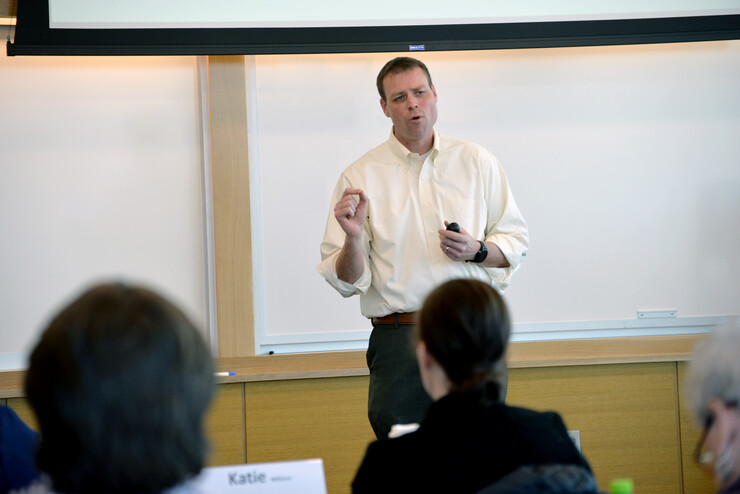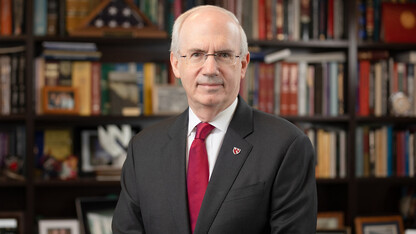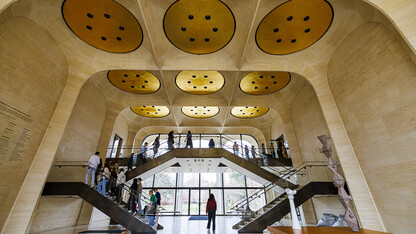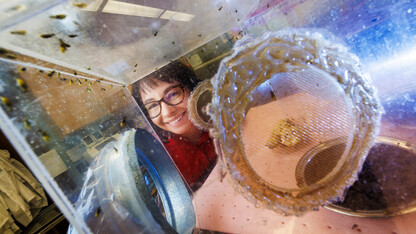· 4 min read
Professional development is focus of power lunches
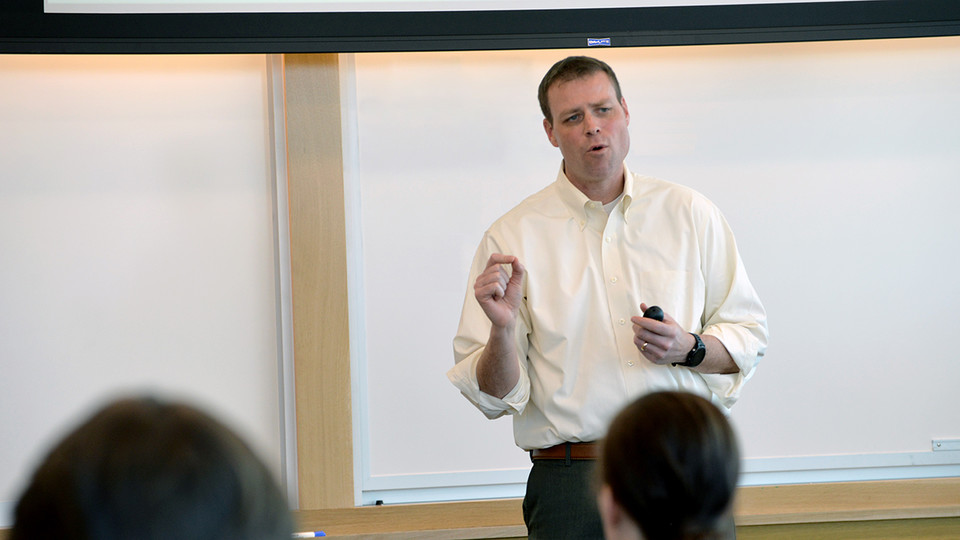
The University of Nebraska–Lincoln Executive Education program will host four power lunches beginning in January, providing business professionals opportunities for strategic career development. The lunches, led by College of Business faculty members, offer ideas and approaches to help solve today’s business challenges.
“Our programs allow professionals to develop a perspective on the challenges that many businesses face,” said Emre Unlu, executive director of executive education, associate professor of finance and Paul C. Burmeister Professor of Investments.
Each 90-minute session costs $49, including lunch and parking validation for the 14th and Avery parking garage. Lunches and programs are open to all Nebraska and surrounding area professionals and students. Register here.
The power lunch facilitators are highly respected and experienced, and use research-backed, practice-oriented learning to enable skill development. The power lunches allow busy professionals an opportunity to gain the education and practice they need to accelerate their careers and grow their organizations.
Power lunch sessions are 11:30 a.m. to 1 p.m. Wednesdays, Jan. 23 through Feb. 13, at Howard L. Hawks Hall. The series includes:
Jan. 23: Positive Psychological Capital: Recognizing and Developing the HERO Within for Improved Performance and Well-Being: Most agree with the importance of being positive at work and in life. However, most also feel such positivity is too “fuzzy” and ill-defined to realistically meet today’s complex challenges. Drawing from the science of positive psychology, Distinguished Professor Emeritus Fred Luthans founded what he termed psychological capital, or simply PsyCap, consisting of hope, efficacy, resilience and optimism, or the HERO within. He will provide an evidence-based understanding of how to develop PsyCap to make attendees more effective, positive leaders.
Jan. 30: Talent Acquisition: Hiring for Strengths and Cultural Fit: Leading executives say a good cultural fit is essential when hiring new employees. Gallup research shows employees who work within their “Strengths Zone” not only look forward to going to work, but work faster, have more positive, creative and innovative moments, treat customers better and achieve more daily with accuracy. The challenge in talent acquisition is to make sure that potential employees match a company’s culture and their strengths match the position. Marijane Hancock, associate professor of practice in management and Gallup Certified Strengths Coach, will discuss interviewing and assessing job candidates for cultural and job fit.
Feb. 6: Moving Beyond Carrots and Sticks: Unlocking Motivation in the Modern Workplace: Does money motivate? Do financial incentives crowd out creativity and intrinsic motivation? Jake Messersmith, executive director of business graduate programs and associate professor of management, will explore the latest research on the complicated relationship between financial incentives and employee motivation to offer insights into how to build an organizational culture and system that motivates individuals and teams to do their best work.
Feb. 13: Cracking the Code of Culture in the Workplace: This session is aimed at those who work with multicultural teams or simply enjoy learning about global cultures. Elina Ibrayeva, associate professor of practice in management, will present several frameworks of cross-cultural differences, including the most recent “Culture Map” model developed by Erin Meyer. Unlike most previous frameworks, the newest model is intended for use in business communications. Attendees will learn how culture shapes assumptions and expectations about business and will be able to brainstorm multiple ways to communicate and build relationships around the world more effectively. Interactive exercises will allow participants to experience cultural differences in a first-hand, fun way. Ibrayeva is an expert in cross-cultural management and has contributed to several studies, including “Culture, Leadership and Organizations: The GLOBE Study of 62 Societies.”
